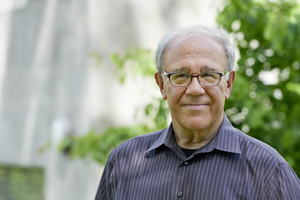
Lecturer at Yale University
Research project:
“Civic-republican” leadership training in American colleges
Abstract:
The premises and protocols of citizen-leadership training in the United States have long been guided by a “civic-republican” model envisioned and elaborated by drafters of the American Constitution. Because their capitalist republic lacked mythical bonds of ethno-racial solidarity and sacred land, its survival depended on a critical mass of its citizens’ upholding public virtues and beliefs which neither the liberal state nor capitalist markets alone nurture or defend-the liberal state because it cannot judge strongly among different ways of life, and markets because they reward self-interested consumers and investors rather than citizens who attain personal and public dignity by moderating self-interest to advance a common good. For these reasons, American republican understandings of selfhood and of citizen-leadership had to be nurtured all the more intensively in institutions such as residential undergraduate colleges in universities that stood somewhat apart from markets and the state.
The premises and practices of civic-republican collegiate education have never been pure or entirely successful, but they did nurture the American leadership that framed the post-World War II trans-Atlantic alliance, Cold War “containment” of Communism, and made possible the American Civil-Rights movement. The breakdown of that leadership and its ethos, and the search for alternative ways to nurture citizen-leadership in an increasingly global sphere, are the subjects of my research.
Events:
June 5, 2014
Paper Presentation
“Should American Liberal-Arts Colleges Train Citizen-Leaders?”, Chairs: Prof. Dr. Rainer Forst, Prof. Dr. Klaus Günther
Location: Forschungskolleg Humanwissenschaften, Bad Homburg
-
Biografische Angaben
James Sleeper is a publicist and political scientist. He lectures at Yale University on topics such as US national identity, liberalism and democracy. He also teaches courses on journalism. James Sleeper's current research project focuses on civic engagement and civic leadership. He is investigating how these virtues are taught at American colleges and universities. At the same time, he explores the question of how and why civic education is currently changing in the American education system. James Sleeper's research and publications focus on American political culture, racial politics, media and higher education. His reporting and commentary has appeared in "Harper's", "The New Republic", "The Nation", "The New Yorker", "The Washington Monthly" and "Dissent", among others. He has also worked as a writer for the Public Broadcasting Service (PBS) and National Public Radio (NPR). His academic career includes stints at Harvard, where he earned his doctorate, New York University and Columbia University. -
Publikationen
Liberal Racism (Rowman & Littlefield, 2002) (First edition published by Viking/Penguin, 1997 and 1998). The Closest of Strangers: Liberalism and the Politics of Race in New York (W. W. Norton & Co.), 1990; paperback (Norton), 1991. In Search of New York (Transaction Books), 1988. Editor. An anthology of reportage, essays, reminiscences, and photography that was a special issue of Dissent magazine in 1987. Contributors include Irving Howe, Ada Louise Huxtable, Michael Harrington, Jim Chapin, Paul Berman, and many others. The New Jews (Vintage paperback), 1971. Co-editor; essays by young religious radicals of the time. Artikel in Sammelbänden: Orwell Into the Twenty-First Century Thomas Cushman and John Rodden, eds. (Paradigm Press, 2005). Chapter: “Orwell’s Smelly Little Orthodoxies – and Ours” A Way Out Owen Fiss, Joshua Cohen eds. (Princeton U. Press, 2003); Essay, “Against Social Engineering,” a response to an “urban removal” manifesto by Yale Law Professor. Owen Fiss. One America? Stanley Renshon, ed. (Georgetown U. Press, 2001). Essay:“American National Identity in a Post-national Age.” Empire City: New York Through the Centuries Kenneth Jackson and David Dunbar, eds. (Columbia U. Press, October 2002). Chapter: “Boodling, Bigotry, and Cosmopolitanism,” about New York City in the late 1980s. Post-Mortem: The O.J. Verdict Jeffrey Abramson, editor (Basic Books, 1996). Essay, “Racial Theater,” about the public staging of the O.J. trial. The New Republic Guide to the Candidates, 1996 Andrew Sullivan, editor (Basic Books, 1996). Essay on Bill Bradley, the non-candidate, and hisconcerns about civil society. Blacks and Jews: Alliances and Arguments Paul Berman, editor (Delacorte, 1995). Chapter: “The Battle for Enlightenment at City College,” on CUNY Prof. Leonard Jeffries and identity politics. Debating Affirmative Action Nicolaus Mills, editor. (Dell, 1994). Essay,“Affirmative Action’s Outer Limits.” Tikkun Anthology Michael Lerner, editor, 1992. Essay, “Demagoguery in America: Wrong Turns in the Politics of Race.” (One of the early, classic critiques of identity politics in the American left.)

